I've created a LoginMutation which return a token and a user (with his id and firstName). Here is the mutation schema :
const LOGIN_MUTATION = gql`
mutation loginMutation($email: String!, $password: String!) {
loginUser(email: $email, password: $password) {
token
user {
id
firstName
}
}
}
When I enter on my website the token and the user are well returned by the graphql server. The user is stored and I can see it in my dev tools :
I have created a Layout component and I want to display on it the firstName of the user. So how can I get the data from the apollo store ?
Thanks for your help.
Below are provided the files concerning by this issue :
LoginPage.js
class LoginPage extends Component {
constructor(props) {
super(props);
this.state = {
login: true, //switch between Login and SignUp
email: '',
password: '',
firstName: '',
lastName: '',
loading: false,
error: ''
};
this.handleSubmit = this.handleSubmit.bind(this);
this.handleInputChange = this.handleInputChange.bind(this);
}
handleSubmit(){
this.setState({loading: true, error: ''});
this._confirm();
}
handleInputChange(event) {
const target = event.target;
const value = target.value;
const name = target.name;
this.setState({
[name]: value
});
}
render(){
return (
<div>
<div>
{this.state.loading ?
<CircularProgress size={60} thickness={7} /> :
this.state.login ?
<LoginForm onSubmit={this.handleSubmit} onChange={this.handleInputChange}/>
:
<RegisterForm />
}
</div>
{this.state.error ? <div className="error">{this.state.error}</div> : ''}
<a
onClick={() => this.setState({ login: !this.state.login })}
>
{this.state.loading ?
'' : this.state.login ?
'Besoin d\'un compte ?' : 'Déjà un compte ?'
}
</a>
</div>
)
}
_confirm = () => {
const { firstName, lastName, email, password } = this.state;
if (this.state.login) {
this.props.loginMutation({
variables: {
email,
password,
}
})
.then(({data}) => {
this.setState({loading: false});
const { token } = data.loginUser;
this._saveUserData(token);
checkAuth.authenticate();
})
.then(() => {
this.props.history.push(`/`);
}).catch((error) => {
this.setState({loading: false, error: error});
});
}
}
_saveUserData = (token) => {
localStorage.setItem('token', token);
}
}
const LOGIN_MUTATION = gql`
mutation loginMutation($email: String!, $password: String!) {
loginUser(email: $email, password: $password) {
token
user {
id
firstName
}
}
}
`
export default compose(graphql(LOGIN_MUTATION, { name: 'loginMutation' }))(LoginPage)
App.js which is the router between pages
class App extends Component {
constructor(props) {
super(props);
}
render() {
return (
<div>
<Switch>
<Route exact path='/connexion' component={LoginPage} />
<PrivateRoute exact path='/' component={WelcomePage} />
</Switch>
</div>
)
}
}
export default App;
Layout.js where I want to get the user firstName from the cache to pass it on Sidebar props
class Layout extends Component {
constructor(props) {
super(props);
this.state = {
open: false,
};
this.logout = this.logout.bind(this);
}
logout() {
this.props.client.resetStore();
localStorage.removeItem('token');
checkAuth.signout();
this.props.history.push(`/`);
}
handleTouchMap() {
this.setState({open: !this.state.open});
}
render() {
return (
<div>
<AppBar title="myApp" iconElementRight={<RightMenu onDisconnect={ this.logout } />} onLeftIconButtonTouchTap = { this.handleTouchMap.bind(this) } />
<Sidebar open={this.state.open} onRequestChange={(open) => this.setState({open})} firstName={this.props.firstName} />
{ this.props.children }
</div>
);
}
}
export default withApollo(withRouter(Layout));
WelcomePage.js
class WelcomePage extends Component {
render() {
return (
<div>
<Layout>
<WelcomeComponent />
</Layout>
</div>
);
}
}
export default WelcomePage;
